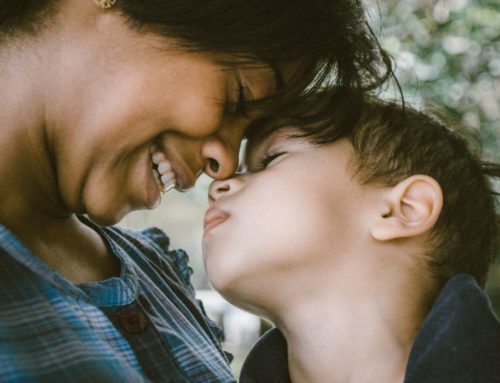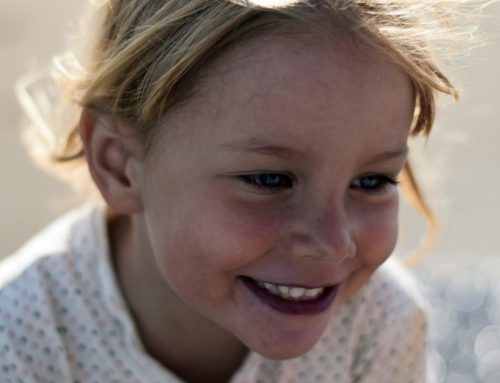
Children don’t have to agree with you to treat you with respect.
We need to teach our children respect for other people’s time, property, space and feelings, and to respect their elders as well as an older sibling.
Time
Being punctual is a way of having self-respect as well as being considerate towards others. Therefore, when you need to leave for school in the morning, or when you pick a child up from a play date, expect punctuality. This is preparation for adulthood.
Property
When there is a younger sibling, the older one needs to learn to be a good steward of his property.
- Therefore, he doesn’t have to allow the younger sibling to play with ALL his toys. He may choose which ones PARENT to share. He can put away the special new toys or the ones that break easily or are dangerous.
- However, if there is a consistent attitude of not wanting to share, then there is a heart attitude that needs to change. You can say something like, ‘Eric, I would like you to choose two toys to share with your sister, otherwise I will have to choose. You have one minute to decide.’ If he remains selfish, take all his toys away and have him earn them back one at a time by demonstrating a change of attitude.
- Respect applies to the kitchen cupboards and refrigerator as well. Children should not be allowed to just help themselves to food in the fridge and snacks in the cupboards. They show respect to their parents by asking permission.
Space
An introvert occasionally needs some space. This needs to be respected. If a sibling persists in irritating her brother by constantly entering his bedroom, make a new rule. Knock before you go in, and WAIT till you get a reply. The person with the closed door has the right to refuse with a good attitude. This should apply to mom and dad’s door too. Again, if the attitude becomes arrogant, then the privilege of having privacy can be removed for a period of time.
Feelings
Being considerate towards people’s feelings does not come naturally.
This needs to be taught as well as lived. Voice empathy towards others; talk about their feelings and how we can walk alongside them or do something to help. If possible, involve the children.
Maybe make a meal or run errands for people in need. Assisting with the elderly, helping in an underprivileged environment or visiting children in hospital are all things to help children think outside of their own needs. Calling each other names is also disrespectful towards others’ feelings. This should not be allowed. A plaster can heal a cut or bleeding wound but will not work for emotional wounds. These hurts could last a lifetime.
This applies also to phrases like ‘shut up’ or other negative bantering or teasing. Parents also need to be aware of speaking positively over their children and not labeling their child with words that have negative connotations, like my little devil, little brat, terrorist, little mongrel etc.
Elders
In years gone by, children were taught to respect their elders.
You would stand up and give your chair to an older person, or you would open the door and stand aside. Nowadays, you hardly ever see this. I believe this attitude begins at home by giving the older child privileges. But with privileges come more responsibility.
We expect more from our older children, therefore they should also have more privileges. A good place to start is letting them go to bed 15 minutes later than the younger sibling. They go to their rooms at the same time, but the older one can read for 15 minutes while you spend quality time settling the younger one. Insist that they speak to each other and their elders with respect as well.
‘It’s not fair!’
Life is not fair or easy.
Preparing our children for this is not a walk in the park. I believe the only thing in life that should possibly be split equally is an inheritance, if there is one. If we constantly split everything equally, children develop a sense of entitlement (a fancy word for being a brat!).
- How many times have you heard in the car, ‘It’s not fair! It’s my turn to sit up front.’ I feel the statement, ‘It’s not fair’ should be treat- ed as a swear/curse word in the home.
- The rule can be that the oldest sits up front. There will be a next time when the younger one is alone with you in the car and can then have a turn to sit up front. Let me ask you: if you were to take your mother in your car, who would automatically sit up front, your child or your mother? Why? Children need to learn to show respect to their elders from a young age. This can start with their older sister or brother.
- When you buy one child something, does the other one complain? When one has a birthday, do both get a present? What are you teaching them? That everything is owing to them. I believe that they need to ’weep with those who weep’ and ‘rejoice with those who rejoice’. This is a wonderful principle for them to learn. One day it’s my turn to get something; another day it’s my sister’s turn.
- Part of our job as a parent is to shape our child’s will and mould his heart. When we see selfishness creep in, we need to address it.
- When a child is selfish, have him respond in the opposite spirit: serving! He can serve his sibling for a day or two. For instance, take her water, make her bed, clear her dishes, do her chores, and so on. If he is rude, he can come up with five nice things to say about his sibling.





